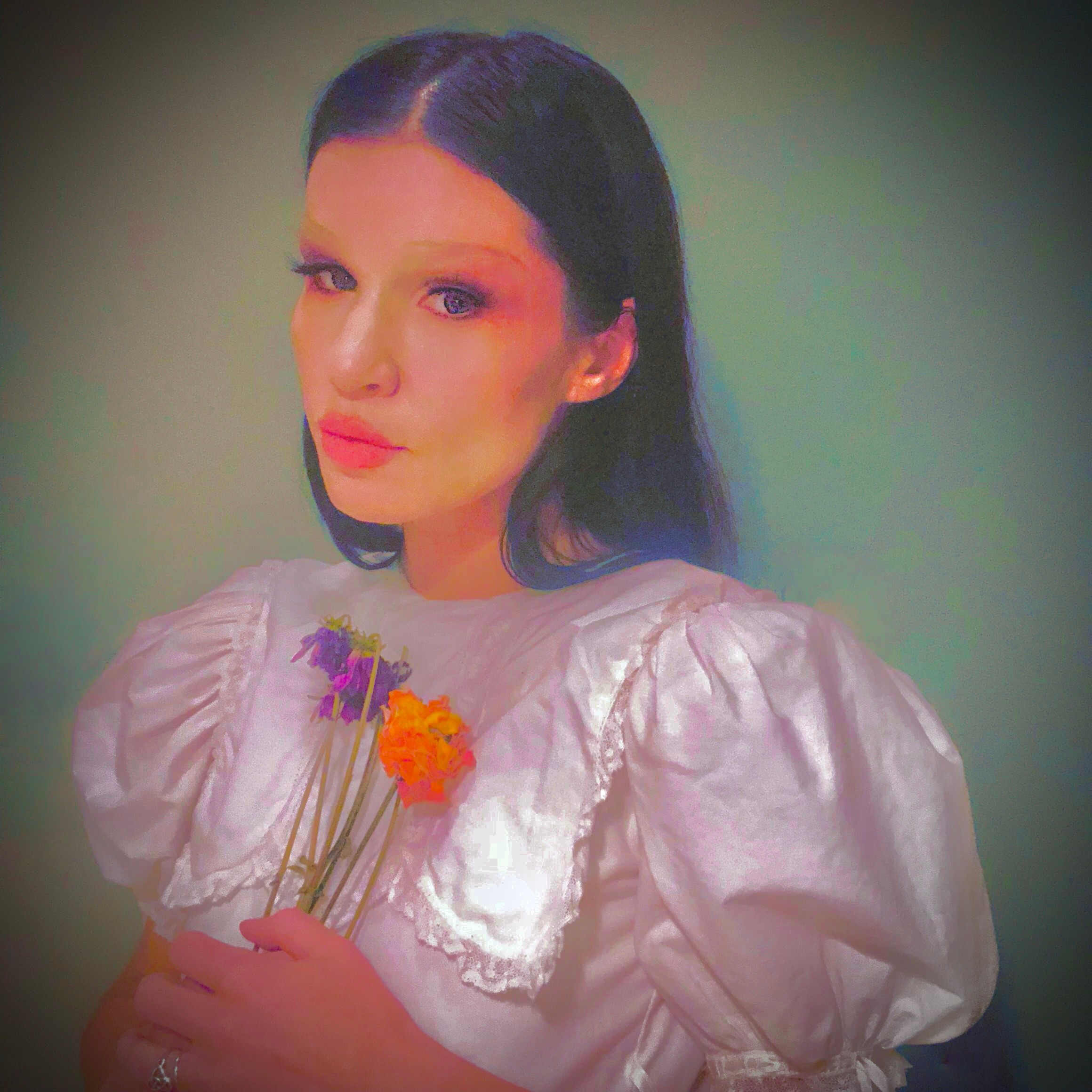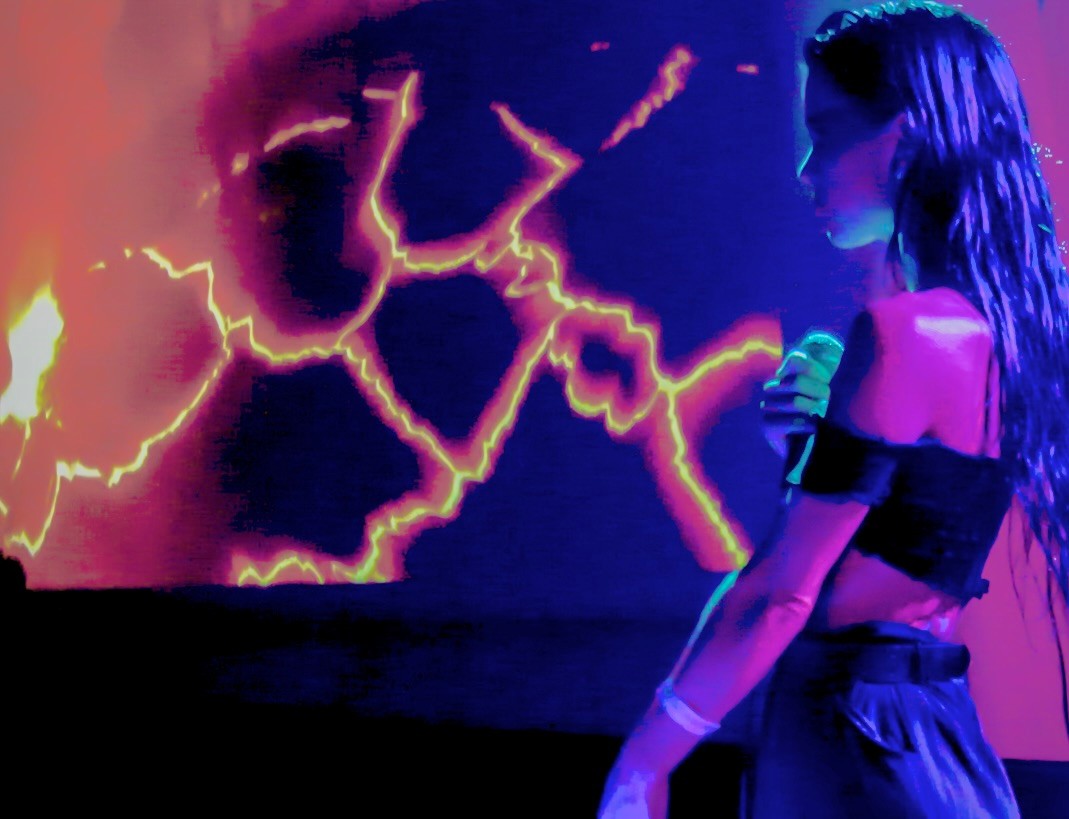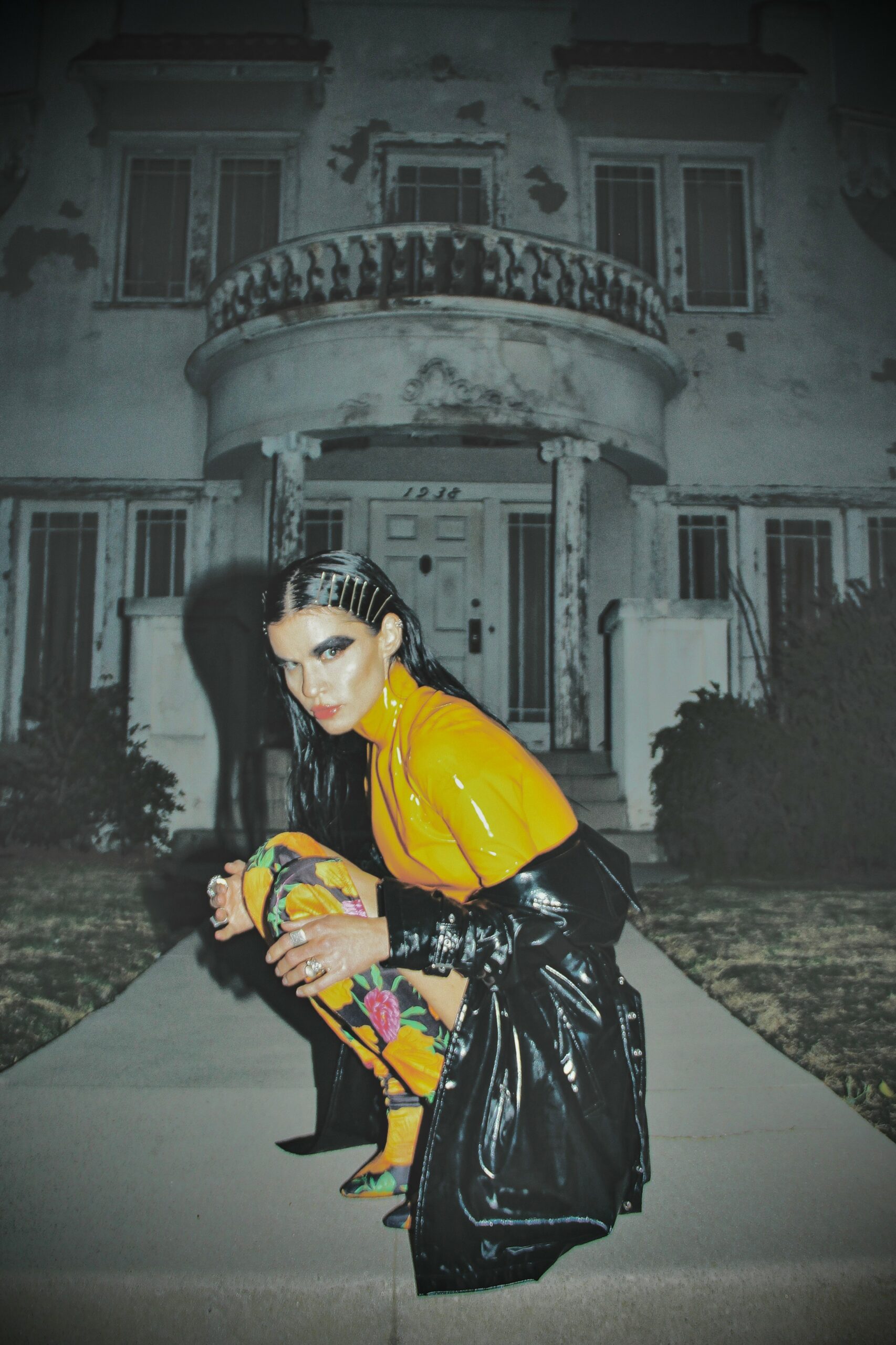Alright – so today we’ve got the honor of introducing you to Tara Rose Timberman. We think you’ll enjoy our conversation, we’ve shared it below.
Tara Rose, we’re thrilled to have you sharing your thoughts and lessons with our community. So, for folks who are at a stage in their life or career where they are trying to be more resilient, can you share where you get your resilience from?
It pains me to say my first tactic for resilience is disassociation (which, not surprisingly, is tied to an anti-capitalist brand of anarchic thinking). When I say disassociation, I mean to say an intentional calibration to choose what to focus my attention on. If that means the electric red of the geraniums I’m walking past or daydreaming about a world in technicolor, there are countless ways to disassociate from reality (without paying a dime). I appreciate the maxim ‘know the rules before you break them’ in the sense I want to know reality before I break from it. This is why I’ve pivoted my life to studying history, politics, culture, and materiality– it’s a means to understand as many perspectives as possible to get a fuller picture of reality. In this way, reality can be an anchor, and enchantment can be the sea. It’s not impossible to exist within the tension between them, as long as ‘progress’ and ‘perfection’ narratives don’t sink you. It helps to keep as low an overhead as possible. I’ve known pain, loss, stress, and trauma since I was an infant; they’ll always be there and can be completely immobilizing. Grief teaches me about the temporality of life. Having known death all too well, I really believe I could die any day in any freak way, and this makes my objectives pretty clear. For me, the (disturbingly fluffy) objective is to spread love, re-enchant the world, and disrupt the status quo, even if it’s just in my head. I miss the mark most times, but I do think my aim is getting better with the years. There’s power in ambiguity. While we can work diligently to envision the world we want, there are always possibilities for unknown futurities. So, we can apply the saying: ‘If we do what we’ve always done, we’ll get what we’ve always gotten,’ to our perspective too: ‘If we look where we’ve always looked, we’ll stay blind to everything outside of our view.’ God, I hate platitudes, but you can’t expect any more from me in this economy. Reality has been a tough pill to swallow lately, and to be honest, I’ve been questioning my own propensity for resilience.
Resilience can also be thought of mechanically, too, in terms of twisting nobs and cranking gears, depending on the circumstance or the individuals. Let’s pretend the machine is a tractor. When we encounter an impasse on a path, we get stuck, backslide, or fall apart. The road might be blocked, muddy, uphill, or unmapped; it can seem like it’s going nowhere, burning fumes. This tractor can be applied to the creative process, to building community, or to life in general. When we might otherwise quit or turn back or resort to self-harming habits (or get a “real” job, or become houseless, or go to jail), these moments of uncertainty and friction are where sparks fly. It’s when we zoom out, zoom in, look from a different angle, change the emotional setting, or, most importantly, contextualize the situation– we find contours on the road that push us forward rather than keep us stuck. We’re not just the tractor; we’re also the ground beneath it and the history of that place and the places we’ve been and the places we’re going. It’s about acting like the process is all there is like a finished product doesn’t exist. This is easier when you imagine yourself as just another set of sensations whose only goal is to record the data of existence, as an employee of the universe: “You are the universe experiencing itself.” Easier said than done, but like I said earlier, having a low overhead helps here.
I’ve been thinking a lot about perspective lately and how political it is. It is a privilege to be able to look away from something or change one’s view. But to make something beautiful out of the murkiness is resilience. Looking away from the trouble just defers it to the future, but, in the words of the cyborg scholar Donna Haraway, “staying with the trouble” is a radical act. After all, the best crops grow in shit.
Stay curious, nimble, hydrated, and as connected to your loved ones as possible. And… get very comfortable with uncertainty, and with saying you were wrong.
Thanks, so before we move on maybe you can share a bit more about yourself?
It’s wild to say that at 43, my life feels like it’s just beginning. But my story starts in a tiny town surrounded by a redwood forest. My parents were hippie thespians who, for better or for worse, made the exodus from 1960s Berkeley to the commune culture of Northern California. My mom is actually a survivor of the Jim Jones cult, which is honestly one of the least interesting things about her. I can’t say if I’ve been happy throughout my life, but one of my earliest memories is running between the legs of naked, painted pagans as they danced around a bonfire under the moonlight, so at least I can say its been colorful.
My dad died of a sudden heart attack when I was 4, so my single mom raised my three siblings and me. Everything was uncertain and difficult, but it was also enchanted and full of luck. I was a wild teenager, and I still feel that way. I dropped out of high school and hitchhiked around the country between living on the streets of San Francisco. It got me into a lot of trouble, and I can’t believe I survived. I truly think that periodically returning to the wild forests around my hometown saved me. This was the mid to late-90s, and SF was unhinged. I was completely devoted to the underground rave scene and the Grateful Dead. I went to some of the early Burning Man gatherings (when they were still anarcho-communist, cyberpunk parties), which imbued me with a mutant sensibility I carry proudly today. I went to support Julia Butterfly Hill’s tree-sit action in Humboldt County and found myself at hundreds of legendary concerts and festivals, including the Free-Tibet Concerts and Woodstock ‘99 (which I attended strictly for economic purposes, contrived around the prospect of seeing James Brown). In the early 2000s, I got pretty involved with the San Francisco anti-war protests and organized street theater demonstrations and other public protests. These were extremely formative times for me as a young artist/activist.
My background is really in theater—the anti-war street theatre was prompted by the fact that my mom was the children’s theatre director, and my family had a big history in local theatre productions.
I didn’t start making music until I was in my mid-20s. In 2005, I was living in a remote cabin managing a weed grow-op. I had a lot of free time and was given a little keyboard, and I started putting my poetry into little piano diddys. I got insanely lucky with offers to play festivals and do recordings despite having no clue what I was doing. In 2007, I moved to Oakland and started performing with a band while writing and producing two albums– Bonfire Diaries (2011) and Ionika (2013). Somewhere around 2013, I started experiencing two unusual sensations: loneliness and abundance. Against my better judgment, I put these feelings towards starting a music collective called Post Primal in hopes of filling all the stages that were being given to me. Post-Primal was magical, legendary, and a total pain in the ass. In 2016, I moved to LA, and it was equal parts exhilaration and struggle.
I played some great shows and put out a five-song EP called Pagan Jazz, but I struggled to find my place between the gay clubs, the goth/post-punk scenes, and the sad piano bar world. I will always make music, but I kind of threw the towel in for a couple of years. After turning 35, I started feeling like I was too old to be fucking around. I overhauled my life, getting my health, finances, friendships, and spiritual direction in line. When I was 39, it just seemed like it was time to get my GED and try for a degree. I knew I needed structure, and school was the only type of structure I could imagine myself in. I enrolled in Los Angeles Community College and started taking history and English classes. Three years later, I’m still waiting for the classes to get harder, which I’m humbled to say has allowed me to live off of my studies. After learning to survive as an independent musician for a decade, getting good grades was a breeze. It’s March 2024, and I’m about to graduate from UCLA with high honors before applying to a Ph.D. program for 2025. The research I have been able to do, just as an undergrad, has unsettled my sense of purpose in a good way. It turns out a life of recording data for the universe makes for some substantial questions, and if I can survive on luck as I have, I sure as hell can repay the favor by mustering the attention span to make a dent in the answers. Like theatre, academia is a place where all possibilities can be explored. The medium doesn’t matter when it’s truth and beauty you’re after.
Truth be told, as all-encompassing as the studies are, making music has become an umbilical cord for my peace of mind. At some point in 2021, I was playing the keyboard and singing in my quiet apartment and got jolted into thinking I had to make another album. I think I just reached a certain brew of not giving a fuck and having too much to say because, somehow, it all happened fairly easy. Despite being a scrappy anarchist, I, like most musicians, have pretty high standards for how I want to sound on a recording. I told my dear sister and fellow audiophile Suzy Poling I wanted to make another album, and she introduced me to Samur Khouja, who amazingly agreed to co-produce it. The album is pretty much done, but if I may be honest, my tractor is stuck in the mud of being complicit in funding the genocide of innocent Palestinians, mud thickened by an increasing interest in my studies– and the privilege of being able to look away.
There is so much advice out there about all the different skills and qualities folks need to develop in order to succeed in today’s highly competitive environment and often it can feel overwhelming. So, if we had to break it down to just the three that matter most, which three skills or qualities would you focus on?
Knowing history, remaining curious, and having humility while being able to go absolutely ham.
What would you advise – going all in on your strengths or investing on areas where you aren’t as strong to be more well-rounded?
This comes back to what I remarked previously– it helps to have a low overhead here. In addition, it helps to be generous here. As long as you are able to pay your bills, take care of yourself, and take care of whatever or whoever is in your care– (and ideally have a plan for the future), the rest should be focused on your strengths. We all have to make sacrifices and do things we are not cut out to do, but you’d be surprised at how much magic you can find in Excel spreadsheets, or for that matter, making a hit or giving soup to hungry neighbors.
If you have kids, no matter who the mother or father is, it’s your duty to be a good parent. Being a good parent is a magical wonder of the world, an ultimate strength. Thus, everything it takes to be a good parent (by developing areas you aren’t naturally strong in) is subsumed by the mission to be a good parent. I’ve decided not to have kids, but having a kid is the ultimate creative project. But god damn, does it look hard. But in no circumstance should you abandon the task. Does that mean you need to hide your struggle? I have no clue. Can you make the struggle beautiful? More importantly, can you put your strengths into the struggle? Looking back, I wish that my mother had been even more dramatic in how she articulated the struggles we were going through. Yeah, maybe I wish she had dissociated from actual reality a little, just once or twice. If she had gotten down on her knees Shakespearean style– in lieu of holding her head almost fainting as she paid the bills on our small kitchen table– she cursed the gods and feined to take her own life, maybe we could have laughed. Those impossible strengths are what your child might find useful. Good luck to you.
I feel this way because I don’t see “strengths” as being a singular medium. Your strength could be playing video games, eating cake, composing sonatas, mixing chemicals in a lab, or getting yourself or someone else pregnant. The medium doesn’t matter. What matters is that you make it matter, and to do that, you have to relate it to the world outside of you.
A good place to start pinpointing what might make things matter is to think about what you find yourself complaining about. The complaint department is golden. Have a complaint? Let’s look at solutions. Solutions often require historical context—”If you do what you’ve always done, you’ll get what you’ve always got,” etc. Who, what, when, and how is involved with your complaint? And, more importantly, how do you see things bettering themselves? Think about every person and resource involved… does this still seem like a good option? You will be rewarded for making the right choice. Trust.
Complaints are always taken seriously, just like a muddy road or a tractor backsliding against the grade. A complaint is the exact point at which someone else’s reality is buffering against yours. This is the same friction as what gives us the fire of resilience. You’re the tractor, and they are the ground beneath you. Soggy, hostile, and unforgiving. How can you, as a tractor, navigate in such a way as to find the most auspicious contours of the road, to propel you ALL further, to bring you ALL in tow? If your fate has been inexorably entwined with another, there’s no use fighting it. You just have to find a way to make it work for all of you, no matter what your flesh desires. This is strength, this is resilience, and this is how you will feel strongest.
Contact Info:
- Website: www.metalmother.net
- Instagram: https://www.instagram.com/metal_mother/?hl=en
- Facebook: https://www.facebook.com/metalmother/
- Linkedin: https://www.linkedin.com/in/tara-timberman-b676652bb/
- Twitter: https://twitter.com/mtlmthr
- Youtube: https://www.youtube.com/channel/UCueUJEhyQ-Q_WiUA6Padkxg
- SoundCloud: https://soundcloud.com/metal-mother








Image Credits
Photo credit is as follows: 1: Erica Gilland, 2: Siouxzen Kang, 3: Kisa Hues, 4: Kisa Hues, 5: Erica Gilland, 6: Michal Mleczko, 7: Self-portrait, 8: Carolyn Craft




